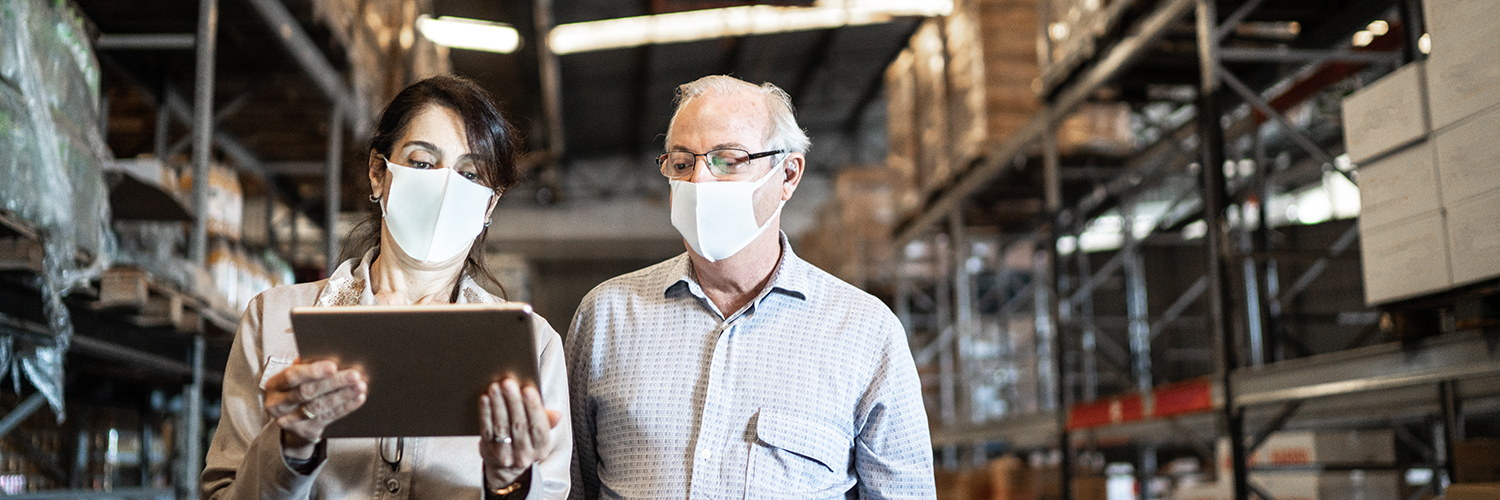Mitigating Risk With a Supply Chain Resilience Stress Test

The new standard for proactively assessing a global supply chain’s ability to mitigate the impact of disruptive events will improve agility and help companies outmaneuver uncertainty.
Accenture and the Massachusetts Institute of Technology (MIT) are co-developing a supply chain resilience stress test for assessing operational and financial risks created by major market disruptions, disasters or other catastrophic events.
Inspired by the crucial financial services industry stress tests that became compulsory after the 2008 financial crisis, the joint effort aims to create a global industry standard for a data-driven strategic assessment of supply chain resilience.
Kris Timmermans, Senior Managing Director and Accenture’s Global Supply Chain & Operations leader:
“The COVID-19 pandemic exposed considerable weaknesses, resulting in severe disruptions in supply chains around the globe, shedding light on the need for intelligent supply chains that prioritize transparency, anticipate new risks and enable faster decision-making. Our stress test enables companies to run more than 40 scenarios at one time, providing unprecedented visibility into where and how their supply chains will be impacted during a major disruption.”
Leveraging Accenture’s extensive expertise in supply chain, operations and analytics, and MIT’s leading research and capabilities in data science, the stress test will quantify supply chain resilience in a single resilience index.
With this test, organizations will be able to quickly identify potential points of failure in their supply chain, assess their related financial exposure, and define appropriate mitigation strategies and actions.
Because the scenarios are standardized, organizations both in the public and private sector will also be able to benchmark their resilience against peers and competitors across industries.
The test is designed to be scalable and adaptable to changing market conditions and customer expectations as supply chains continue to evolve. Global food company, Sigma, through its European subsidiary Campofrio, is among the companies working with Accenture and MIT to implement the stress test on its supply chain and provide input and use-case insights to its development.
Fernando Ibarra, Supply Chain Director of Sigma in Europe:
“As a company with a wide international footprint, we need to ensure an uninterrupted supply of products to our customers, no matter what disruptions occur. Managing the impact of COVID-19 required high effort on our side, and in the process, we uncovered several weaknesses in the supply chain we wished we had identified more proactively before. Working with Accenture and MIT on this groundbreaking project will be key to recognize other potential weaknesses and continue increasing our supply chain resilience.”
The stress test begins with the creation of a “digital twin” of an organization’s supply chain. This enables the subsequent modeling of various combinations of scenarios and impact that would significantly disrupt the organization’s ability to serve customers, shareholders, employees, and society. Such scenarios could include sudden spikes or drops in demand, the shutdown of a major supplier or facility, scarcity of a critical raw material, or disruption of a key port.
The stress test can identify both the time it would take for a particular node in the supply chain to be restored to full functionality after a disruption (i.e., “time to recover”) and the maximum duration the supply chain can match supply with demand after a disruption (i.e., “time to survive”).
This approach to supply chain risk management has been introduced and discussed by MIT Professor David Simchi-Levi and his PhD students in their article, From Superstorms to Factory Fires: Managing Unpredictable Supply-Chain Disruptions.
Simchi-Levi, who has published extensively on the need for consistent approaches for identifying and mitigating supply chain risks:
“There is a critical need for a global stress test standard to help prevent shortages of vital products and supplies from happening when the next disaster strikes. The test will allow companies to understand the resiliency of their supply chains, recognize weak links and act quickly to balance the impact of unprecedented events on customers, operations and finances.”
Accenture and MIT have a long history of collaboration and recently launched the MIT and Accenture Convergence Initiative for Industry and Technology. The new initiative brings together Accenture experts and the best minds from across MIT to explore how the convergence of industry and technology will transform global business and society, and how organizations can uncover and better capture its opportunities.
Supply Chain 24/7 Education Resource Center
Find the latest educational resources, degrees, and programs.
Visit: Supply Chain 24/7 Education Resource Center
Article Topics
Accenture News & Resources
C-Suite Executives Investing Heavily in Generative AI What generative AI means for supply chain work Supply Chain Currents Part I: Is there a different way to move freight more effectively? Companies Shifting Away from China a Boon to U.S., Mexico Accenture survey highlights factors that can influence nearshoring decisions AI Simulation Helps Supply Chains Predict the Future Navigating Cultural, Country Differences When Nearshoring Operations More AccentureLatest in Business
Trucking Industry Pushes Back on Government’s Electric Mandates Senators Take Aim at Amazon with Warehouse Worker Protection Act Maersk Sees Silver Lining in Red Sea Shipping Challenges Happy Returns Partners With Shein and Forever 21 to Simplify Returns Baltimore Opens 45-Foot Deep Channel Following Bridge Collapse Ranking the World’s 10 Biggest Supply Chains The Top 10 Risks Facing Supply Chain Professionals More Business













